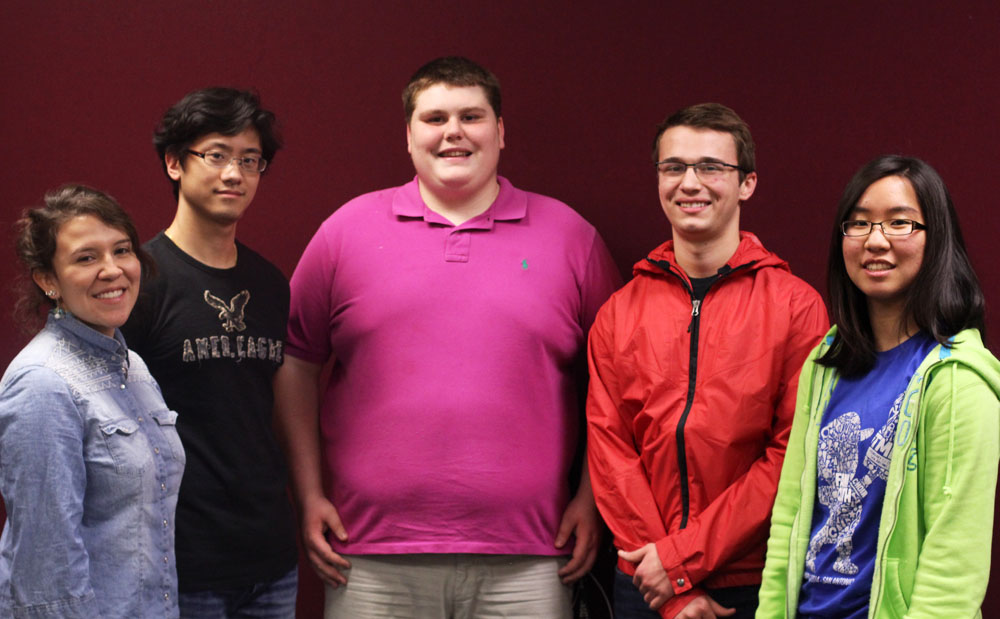
by Stephanie Palazzolo, assistant editor
All-State. The dream of thousands of orchestra, band and choir students all across Texas and the nation. Every year, scores of student musicians audition in hope of making it into this select group, which consists of the best high school musicians in the state. For many, the journey ends early with the competitive auditions for Region and Area orchestras, bands and choirs. However, for a few, their dreams come true.
“Our music program at Consol is pretty good, don’t get me wrong, but the All-State ensembles were at a completely new level that I didn’t even know high school students were capable of,” sophomore Simon Kapler said. “I even felt out of place there just because I was not used to that level of mind blowing talent.”
Kapler, who placed third chair trombone in the symphony orchestra, was one of the five Consol students who made it to All-State, including sophomore violinist Minha Kim, who placed 63rd chair in the philharmonic orchestra, junior violinist James Wu, who placed 18th chair in the symphony orchestra, junior Randy Westmoreland, who placed fifth chair overall and sang in the men’s choir as well as senior Laura Ramirez, who placed 10th chair overall and sang in the women’s choir.
However, their achievements did not come without a price; making the All-State ensembles required hours of practice.
“The hardest part was still keeping up the perseverance and hard work even though we had already drilled it in and were tired of it,” Westmoreland said. “I just had to find new ways to make it sound better to give a better impression on the judges.”
The students had to go through a series of auditions and were given their music after being notified of their acceptance into the All-State ensembles.
“They give you a packet that has the CD, all the pieces of music, and you get to annotate it,” Ramirez said. “After you learn [the music], you take it there and you rehearse. If you like what you’re doing, learning the music doesn’t take a long time at all.”
Then the five students traveled to San Antonio for four days to join up with other musicians from around Texas to rehearse and eventually perform in a concert at the end of the trip. The ensembles had to practice together for hours every day, even rehearsing up to nine hours on one day. Even though the rehearsals were tiring, they still provided a chance for many to interact with other students with similar interests.
“You get to rehearse with people who have amazing voices and love music,” Ramirez said. “You also have great directors who obviously have a passion for what they’re doing. And you don’t learn the music because you have to learn it, but because you get to share it with a bunch of people who like doing the same thing.”
In addition to having more difficult music, independent study was also highly emphasized in the All-State ensembles compared to school orchestras, bands and choirs.
“We didn’t do warm-ups, and you’re expected to get there early,” Wu said. “The music you play is more advanced; it’s typically not arranged.”
Despite the incredible amounts of time and effort that went into preparing for All-State, it had its light-hearted moments too.
“There’s a part at the end of a piece where the whole band sings, and you have to do falsetto if you’re a guy because they wanted everyone to be in the correct octave,” Kapler said. “There was one guy who was in the wrong octave, and so they were going around the room, pointing to people and telling them to sing the note, and when they got to me my voice cracked. Everyone started laughing and clapping for me. It was embarrassing, and the guy that sat next to me, a couple minutes later, looked at me and said, ‘You have a beautiful voice.’ That was definitely a humbling moment.”
The musicians were given the opportunity to explore San Antonio when they weren’t rehearsing, and even had a college night for those who were considering going into a music major or minor.
“I visited a lot of the small colleges, but the ones I visited still had really good music programs, because that’s what I plan on majoring in,” Westmoreland said. “It was definitely interesting; all the directors at the colleges were really nice and helpful.”
All of the practice and rehearsals led up to the final day, where the three ensembles performed for the general public in a large concert.
“They turned the light out when we performed so we couldn’t see anybody in the audience,” Kim said. “But the convention center hall where we had the concert was huge; it was three stories tall.”
This whole experience shone a new light on music for some, causing them to even consider continuing to play music into college and beyond.
“All-State definitely changed my personal outlook on my future in music,” Kapler said. “Before, I had thought about, for a while, minoring in music. But seeing what was possible [in All-State] made me think that that might actually be a good option for me if I stay with music.”
All five enjoyed the trip and performance and would encourage anybody interested in music to audition.
“It’s definitely a lot of work and a long road,” Westmoreland said, “but once you reach that light at the end of the tunnel, it’s one of the best experiences you could ever have.”

